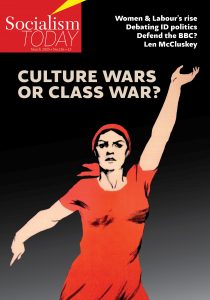
Just two months after the general election the simmering divisions within the Tory party that were quieted by the outcome of the December contest, bubbled back to the surface with Sajid Javid’s dramatic resignation as chancellor on February 13.
The immediate cause was Boris Johnson’s ultimatum that Javid’s advisors be sacked, echoing the conflict between Margaret Thatcher and Nigel Lawson, who resigned as chancellor in October 1989 just a year before her own mortal wounding by the mass anti-poll tax non-payment movement (in which the Socialist Party’s predecessor, Militant, played a critical role).
Read more